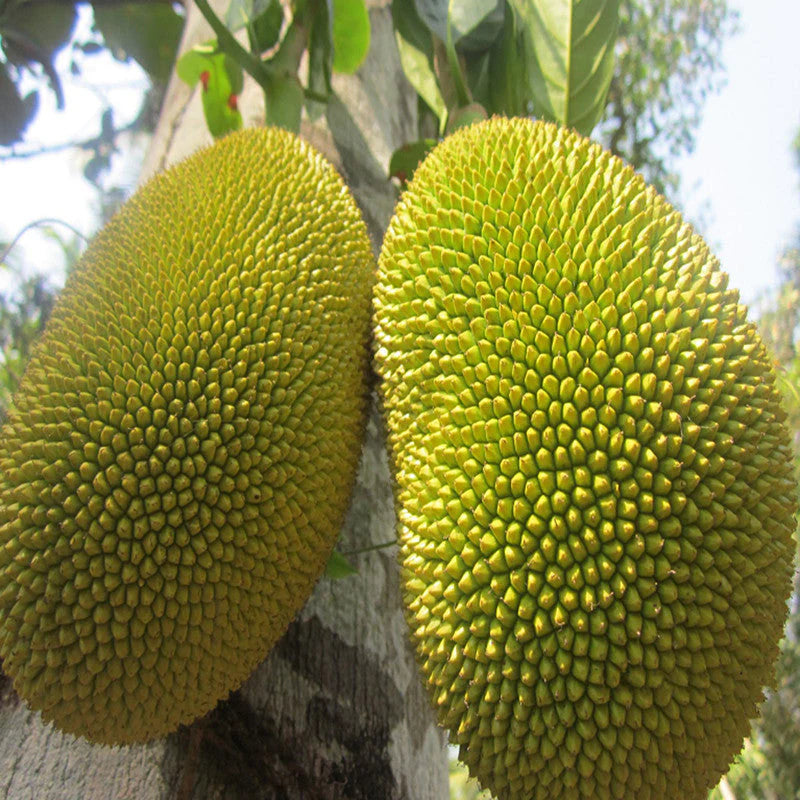
PEST MANAGEMENT IN JACKFRUIT
Share
Introduction
Pest management is a crucial aspect of successful farming, especially for jackfruit farmers who face unique challenges in protecting their crops from pests. With the help of modern technology and resources like the Kishan Sathi app, farmers can now access effective pest management strategies to safeguard their jackfruit harvest.
This comprehensive guide will provide essential information and tips on how to effectively manage pests in jackfruit farming, ensuring a healthier and more productive crop.

Understanding the pest threats to jackfruit farms
To effectively combat pests in jackfruit farming, it is essential to first understand the common threats that farmers face. Jackfruit farms are vulnerable to a variety of pests such as fruit flies, weevils, and scale insects that can wreak havoc on the crop if not managed properly.


By identifying these pests early on and monitoring their populations regularly, farmers can take proactive measures to prevent infestations and minimize crop damage. In the following sections, we will delve into specific pest profiles and provide tailored strategies to address each threat effectively. Stay tuned for expert insights on mitigating pest risks and optimizing jackfruit yields.
Integrated pest management approach for jackfruit farming
Implementing an integrated pest management (IPM) approach is crucial for sustainable and effective pest control in jackfruit farming. This method combines various techniques such as biological control, cultural practices, and targeted pesticide use to maintain pest populations at manageable levels while minimizing environmental impact. By integrating these diverse strategies, farmers can create a balanced ecosystem that naturally regulates pest populations. In the upcoming sections, we will explore the components of an IPM plan tailored specifically for jackfruit farming, highlighting best practices and innovative solutions for sustainable pest management. Stay informed to enhance your pest control strategies and protect your jackfruit crop effectively.
Identification and monitoring of pests
Accurate identification and continuous monitoring of pests are fundamental aspects of effective pest management in jackfruit farming. By recognizing the specific pests affecting your crop, you can implement targeted control measures to prevent infestations and minimize damage. Regular monitoring through visual inspections, pheromone traps, and sticky traps enables early detection of pest populations, allowing for timely intervention. Consider keeping detailed records of pest activity and population dynamics to track trends and respond proactively.

In the following sections, we will delve into the common pests that plague jackfruit orchards and provide guidance on efficient monitoring techniques to safeguard your harvest. Stay vigilant and proactive in identifying and monitoring pests to uphold a healthy and thriving jackfruit crop.
Cultural control methods for pest management
In addition to identification and monitoring, implementing cultural control methods is essential for sustainable pest management in jackfruit farming. Cultural practices such as proper spacing between trees, regular pruning to improve air circulation, and maintaining soil health can help reduce pest populations and enhance the overall resilience of your orchard. Utilizing integrated pest management (IPM) strategies, which combine cultural controls with biological and chemical interventions as needed, can effectively keep pest pressures in check while minimizing environmental impact. By incorporating these cultural practices into your pest management plan, you can create a balanced and holistic approach to safeguarding your jackfruit crop. Let's explore these strategies in detail to optimize your pest management efforts.
Biological control strategies for sustainable pest management
Biological control strategies play a crucial role in sustainable pest management for jackfruit farmers. Introducing natural predators, parasites, or pathogens that target specific pests can help maintain a balanced ecosystem in your orchard. Encouraging beneficial insects like ladybugs or lacewings can aid in controlling pest populations without the need for chemical interventions. Additionally, using microbial pesticides or biopesticides derived from natural sources can effectively manage pests while minimizing harm to the environment. By harnessing the power of biological controls, farmers can reduce reliance on conventional pesticides and promote a healthy and biodiverse agricultural system. Stay tuned as we delve deeper into the realm of biological pest management strategies for your jackfruit farm.
Chemical control options and their precautions
Chemical control options can be effective in managing severe pest infestations in jackfruit orchards. However, it is crucial to use them judiciously and with caution to minimize environmental impact and ensure farmer safety. Before applying any chemical pesticides, always read and follow the instructions on the label carefully. Consider using integrated pest management (IPM) techniques to reduce the use of chemical pesticides, such as rotating different chemical classes to prevent pest resistance.

Regularly monitor pest populations to determine the appropriate timing and dosage of chemical treatments. Stay informed about the potential risks associated with chemical pesticides to make well-informed decisions for your farm. In the upcoming section, we will explore the various chemical control options available and discuss their specific precautions for safe and efficient pest management in jackfruit farming.
Ensuring proper storage and transportation practices to prevent pest infestations
Ensuring proper storage and transportation practices is crucial in preventing pest infestations in jackfruit farming. Implementing strict hygiene protocols in storage areas and during transportation can help minimize the risk of spreading pests. Regularly inspect storage facilities for signs of pest activity and promptly address any issues to prevent infestations. Utilize appropriate packaging materials that are pest-resistant and sealable to safeguard the produce during transportation.
Maintaining cleanliness and organization in storage and transportation processes is essential for effective pest management. By following these practices, jackfruit farmers can protect their harvests and ensure highquality produce for market distribution.
Conclusion
The importance of proactive pest management in jackfruit farming
In conclusion, implementing proactive pest management strategies in jackfruit farming is essential to safeguard the quality and profitability of the harvest. By prioritizing proper storage and transportation practices, farmers can significantly reduce the risk of pest infestations and ensure that their produce meets market standards. Regular inspections, adherence to strict hygiene protocols, and the use of pest-resistant packaging materials are vital components of an effective pest management plan.
